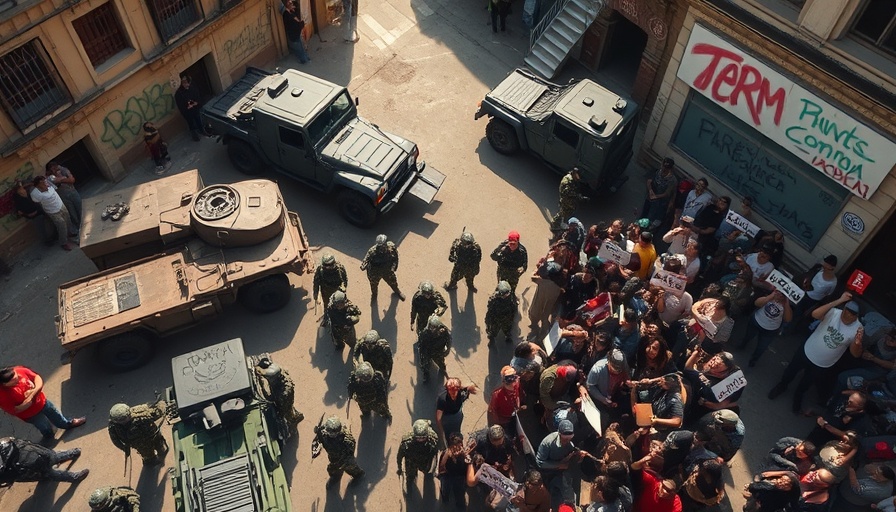
The California Showdown: Trump’s Immigration Agenda in Action
President Trump has found his moment. In a California city that traditionally aligns with Democratic values, he has seized the opportunity to confront Governor Gavin Newsom on immigration, an issue central to his presidency. The confrontation follows protests that erupted after an immigration raid in Los Angeles’ garment district, painting a vivid picture of a divided nation.
Bypassing Authority Amidst Crisis
In a striking display of federal power, Trump decided to bypass Governor Newsom's authority by deploying National Guard troops to Los Angeles, despite local authorities not requesting their assistance. The administration paints this move as a necessary defense against what they deem an existential threat posed by protests against their immigration policies. The escalating situation in Los Angeles has prompted Fresh protests as Trump rallies his base by labeling demonstrators as “violent, insurrectionist mobs.”
The Political Stakes Are High
The standoff brings with it significant political ramifications. For Trump, this confrontation serves as a rallying cry, unifying his supporters while casting dissenters as enemies of national security. It’s not just about immigration; it is a calculated maneuver to reinforce his narrative of chaos tied to local Democratic leadership in blue states. The outcome of these confrontations could have implications not only for local governance but also for upcoming elections, as many community members and residents find themselves caught in the middle of a national narrative.
A Local Perspective: Voices from the Ground
Community reactions have varied, reflecting the city’s diverse population. Some residents echo Trump’s sentiments, advocating for strict immigration enforcement. Others view the deployment of National Guard troops as an overreaction, fraying already strained community relations and fostering division. Activists argue that increased federal presence is not a solution but rather a catalyst for ongoing protests, further complicating an already tense situation between locals and law enforcement.
Trump’s Rhetoric and Its Implications
Trump has exploited this scenario to amplify his message of “law and order,” a cornerstone of his approach since assuming the presidency. His comments on social media, depicting Los Angeles as “invaded,” tap into a fear-driven narrative that resonates deeply with his supporters but raises alarm among opponents concerned about the potential for increased violence and unrest borne from such charged rhetoric.
What This Means for Local Communities
At a local level, the situation raises questions about community safety and the role of local government. Many residents are concerned that such federal interventions will lead to a dilution of local authority and a rise in tensions. Community leaders must navigate this complicated landscape while ensuring public safety and maintaining civil discourse amid political divisiveness. Local town halls and community forums are vital in fostering dialogue to broker solutions.
Potential Future Trends in Immigration Policies
As the confrontation unfolds, it’s clear that the national conversation about immigration will continue to intensify. The Biden administration may face increased pressure to respond—not just in policy terms but in terms of public perception and social stability. Observers speculate that future trends may lean towards stricter enforcement but could also spur advocacy for reform as grassroots movements mobilize both in support of immigrants and in favor of border security.
In these times of uncertainty, community members are urged to stay informed about local events and updates from the city council to ensure they have a voice in shaping how their neighborhoods respond to unfolding national issues. Engaging with local government, attending town meetings, and participating in peaceful demonstrations are vital ways community members can express their views.
 Add Row
Add Row  Add
Add 



Write A Comment